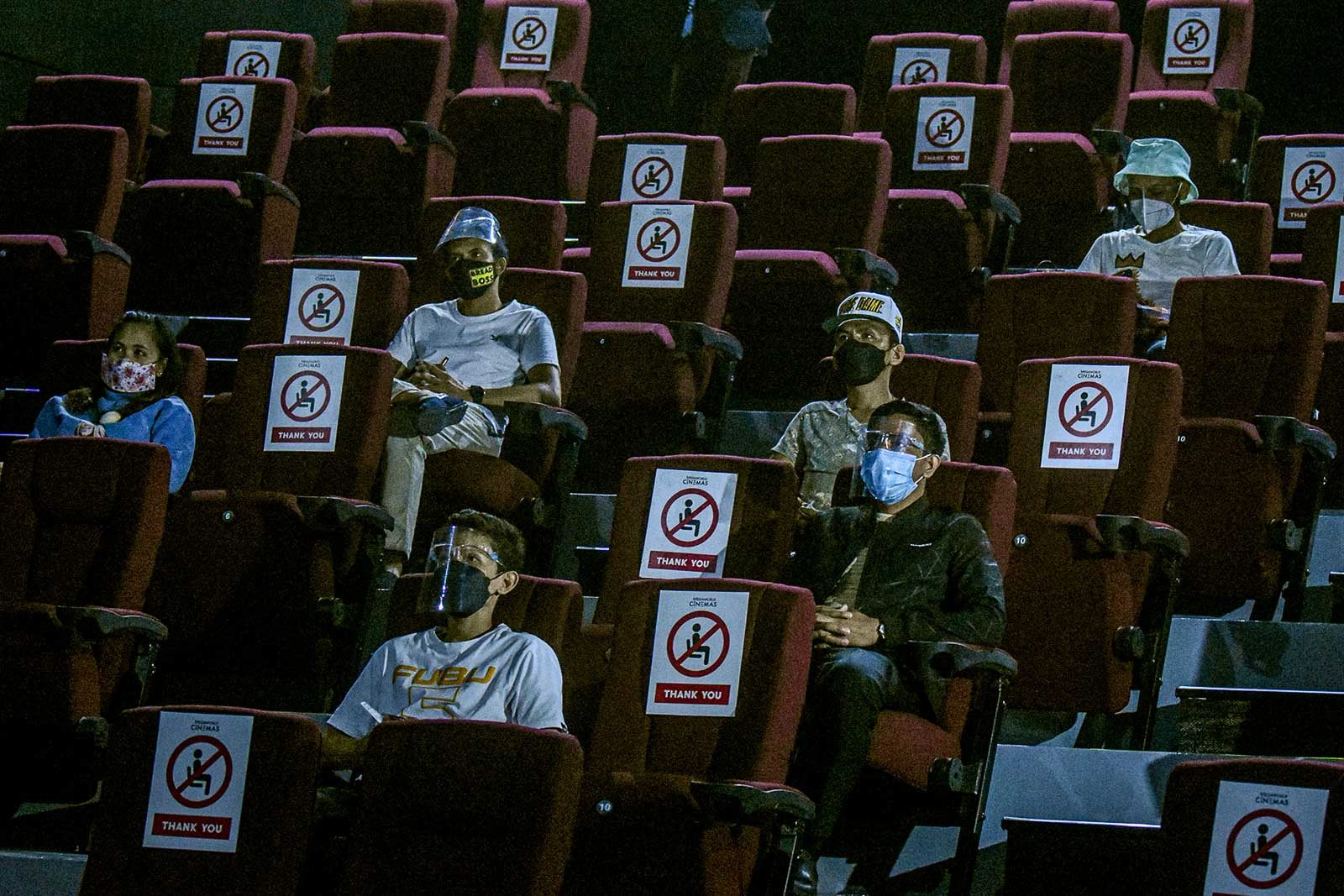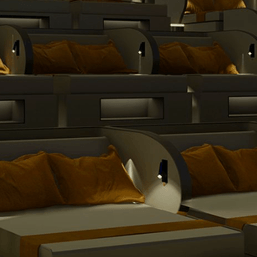SUMMARY
This is AI generated summarization, which may have errors. For context, always refer to the full article.

After nearly two years, cinemas in the Philippines are finally open again.
With the advent of this news, there has been a push towards supporting the theatrical experience, and understandably so. Some of my most memorable experiences as an audience member are ones that are tied to the cinema: from cry-laughing while watching Cleaners at (the now-closed) Cinema Centenario, to audibly gasping after the successive reveals in Parasite at SM Marikina, to the whole IMAX theater shaking while watching Doctor Strange at Bonifacio High Street. But more than just the film itself: it’s the popcorn, the energy of the crowd, the process of giving up control, the conversations afterwards, and so much more. It’s a communal experience that cannot be replicated – the only way some of us ever travel.
The pandemic resulted in a major upheaval of cinema-based initiatives in the country — with over 300,000 industry workers losing their jobs and around P21 billion in revenue lost since theaters have been closed, according to the Cinema Exhibitors Association of the Philippines (CEAP). It is only sensible that filmmakers and moviegoers are celebrating this period: it’s a chance to return to the art form and it’s a sign of hope and stability; a light at the end of what seemed like an endless tunnel.
The world outside the cinema has inevitably changed. While COVID-19 cases have hit a new 11-month low in the country, public transport is still stunted and the rise of the rapidly spreading Omicron variant threatens this newfound peace. Wary of disrupting this momentum towards normalcy, cinemas are exercising necessary precautions: allowing only fully vaccinated and fully-masked individuals into the theater, deep-cleaning surfaces and chairs in between screenings, improving ventilation systems, and operating at only 30-50% capacity due to social distancing requirements. Apart from this, big franchises such as SM Cinemas and even cinematheques like Sine Pop have begun offering private movie screenings in the hopes of minimizing stranger danger.
***
As a film critic (or honestly, just as a person who loves and supports the arts), the expectation is to assuage public fear and to encourage people to go to the theater. Especially because our duties are also, in part, tied to the theatrical release. But in truth, the anxiety looms over me too and it prevents me from traveling from the province back to Manila. With two of the biggest festivals in the Philippines — QCinema and the Metro Manila Film Festival — having in-person screenings, going to the cinema has become not only an economic burden but also a necessary hazard.
There was a time wherein people debated, at least in the US, about how the theatrical experience was ending because of television. It was clear, at least two years ago, that it was possible for both to co-exist. But, with the threat of the virus looming over us like an overhead guillotine, there has been a major shift towards the at-home viewing experience. But with the turn-out of this year’s QCinema Film Festival, it’s proof (even if small) that the theatrical experience will always be there for people who will want it.
But it’s not as if the communal aspect of watching a film is absent at home. It has always been possible regardless of screen size or the scale of the sound system. In fact, for many people in the Philippines (including myself), smaller screens are the reality even prior to the pandemic and the rise of streaming services. Moviegoing meant huddling around the television with extended family or even neighbors to watch films on Pinoy Box Office (PBO) or through rentals from Video City. That process has only been adopted by our technology-addled world by enabling at-home watch parties through browser extensions like Teleparty and Scener, or even platforms like Zoom and Discord, which allow people to chat simultaneously while viewing a film.
I cannot deny the sheer joy and convenience that comes along with being able to watch a film at home. It trims away many of the material concerns that once brought me anxiety, because going to the movies meant a bevy of expenses: not only food and transport, but also time in traffic. Now, I am able to load up a film anytime, take notes, and even rewatch it if time and the platform permit.
How do we support the arts and entertainment industry — which has been on the verge of collapse since lockdown happened — while also being socially responsible individuals?
***
It has become a process of reassessing how we consume media, what we support when we pay for tickets, and who the money goes to. Hollywood blockbusters and other foreign titles have continuously profited and pushed out local titles from our screens and into obscurity. Even smaller cinematheques and other creative spaces that used to be the homes of these Filipino films and international arthouse titles have been struggling due to their susceptibility to socio-political realities, while large cinema chains owned by conglomerates are insulated from these.
What it reveals is something that we’ve always known: that there are material realities that limit what films are accessible at all phases of production, and certain privileges remove those limitations for the public. Cinemagoing has, for the longest time, been restricted to the middle to upper class members of society, especially those in the nation’s capital. Capitalism has infiltrated many of these artistic centers and turned them into self-serving machineries without even rewarding the creatives for their work nor providing empathy in the face of life-and-death.
Maybe this is what prevents me from going back to the cinema despite being knowledgeable of the safety precautions in place. We were on the cusp of a major transformation: wherein the hybrid format of film festivals and of commercial distribution could have given Filipinos access to titles they wouldn’t otherwise have had the chance to safely and affordably consume. We’ve seen throughout the pandemic that, though piracy is an inescapable reality in the country, people are more than happy to shell out their hard-earned money to support work.
I acknowledge that I am being a killjoy during a time of celebration and that there are commercial and political machinations that I am likely not aware of that need to be considered. I should just be happy that there is at least the option to go to the cinema and that the industry is “bouncing back;” that people are getting paid for their work and that those who want to see films on the big screen can.
But I cannot find it in me to participate nor can I find it in me to encourage others to risk their lives for Western media conglomerates that could care less about them. I can’t help but wonder who is benefitting from all this cultural work and if we’re just taking two steps back after a year of trying to move forward.
Sure, the cinemas are open. But for whom?
Add a comment
How does this make you feel?


![[Rappler’s Best] US does propaganda? Of course.](https://www.rappler.com/tachyon/2024/06/US-does-propaganda-Of-course-june-17-2024.jpg?resize=257%2C257&crop=236px%2C0px%2C720px%2C720px)



![[Only IN Hollywood] Action director Baltasar Kormakur shifts to East-West love story](https://www.rappler.com/tachyon/2024/07/Touch-Koki-and-Palmi-Kormakur-are-among-the-compelling-reasons-to-watch-Baltasar-Kormakurs-Touch.-Focus-Features1-scaled.jpg?resize=257%2C257&crop=853px%2C0px%2C1707px%2C1707px)








There are no comments yet. Add your comment to start the conversation.